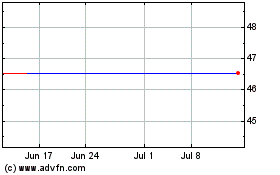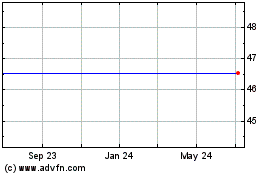CoLucid Pharmaceuticals Provides SPARTAN Enrollment Update
November 14 2016 - 8:00AM

CoLucid Pharmaceuticals, Inc. (NASDAQ:CLCD) today announced that
over 50% of the 2,968 migraine patients expected to enroll in the
Company’s SPARTAN trial, the second of two pivotal Phase 3 clinical
trials, have now been randomized. The objective of SPARTAN is to
evaluate the safety and efficacy of lasmiditan (50 mg, 100 mg and
200 mg) in comparison to placebo two hours after dosing on freedom
from migraine headache pain, which is the primary endpoint, and on
freedom from the most bothersome associated symptom of migraine
(nausea, phonophobia or photophobia), which is the key secondary
endpoint.
SPARTAN is a randomized, double-blind, placebo-controlled
parallel group study. The study is expected to treat a single
migraine in up to 2,226 migraine patients with lasmiditan at
approximately 140 sites in the United States, United Kingdom and
Germany. CoLucid expects that migraine patients enrolled in
SPARTAN will include those who also have one or more cardiovascular
risk factors, stable cardiovascular disease or known coronary
artery disease (“CAD”). Both the primary and key secondary
endpoints, and their statistical powering, of SPARTAN are the same
as SAMURAI, CoLucid’s recently completed first Phase 3 pivotal
clinical trial. SPARTAN is being conducted under a Special Protocol
Assessment (“SPA”) agreement with the U.S. Food and Drug
Administration (“FDA”). Top-line results from SPARTAN are expected
in the second half of 2017.
Of the migraine patients currently enrolled in SPARTAN, 85% are
female, and patients range from 18 to 79 years of age, with an
average age of 44. At least 77% of migraine patients enrolled in
SPARTAN to date have multiple risk factors for cardiovascular
disease and 3% have stable cardiovascular disease or known CAD. The
patient demographics to date in SPARTAN are very similar to the
demographics from SAMURAI. Lasmiditan utilizes a novel mechanism of
action that is designed to not have the vasoconstrictive activity
associated with some currently marketed acute migraine treatments.
Lasmiditan may present a new option for the acute treatment
of migraine patients with cardiovascular risk, CAD or other
cardiovascular diseases as these patients may be contraindicated,
or warned against utilizing currently marketed acute treatments,
such as triptans and ergotamines.
“SPARTAN enrollment is tracking on schedule,” said Bernice Kuca,
Head – Clinical and Regulatory Operations. “Most migraine patients
that our investigators have enrolled in SPARTAN to date have
concomitant cardiovascular risk or disease, as many of these
patients cannot utilize marketed acute treatments for migraine. A
large proportion of diagnosed migraine patients are dissatisfied
with their current treatment and lasmiditan provides a new
mechanism of action for the acute treatment of migraine. We
continue to believe that these underserved migraine patients may
benefit from the acute treatment of their migraine attacks with
lasmiditan.”
About LasmiditanLasmiditan has been designed to
deliver efficacy for the acute treatment of migraine headaches in
adults without the vasoconstrictor activity associated with
previous generations of migraine therapies. It selectively
targets 5-HT1F receptors expressed in the trigeminal pathway of the
central nervous system. Lasmiditan has been given the generic
stem name “ditan,” which distinguishes it from other drug classes,
including triptans, the current standard of care for migraine.
CoLucid’s first pivotal Phase 3 clinical trial of lasmiditan
oral tablets, SAMURAI, was a randomized, double-blind,
placebo-controlled parallel group study designed to evaluate the
efficacy and safety of lasmiditan (100 mg and 200 mg) in comparison
to placebo. Both the 100 mg and 200 mg doses of lasmiditan were
efficacious on migraine headache pain freedom, the primary
endpoint, and most bothersome associated symptom freedom, the key
secondary endpoint, at the two-hour time point (p < 0.001). Both
the primary and key secondary endpoints of SAMURAI conform to the
FDA draft Guidance for Industry, Migraine: Developing Drugs for
Acute Treatment, issued in October 2014. Both the 100 mg and
200 mg doses of lasmiditan were also more efficacious than placebo
on headache pain relief at the two-hour time point (p < 0.001),
as a rescue medication on headache pain freedom at the two-hour
time point (p < 0.001 and p < 0.012), in reducing migraine
related disability at the two-hour time point (p < 0.001) and in
improving Patient Global Impression of Change (p < 0.001).
Lasmiditan was well tolerated with no significant difference in
cardiovascular adverse events in patients dosed with lasmiditan
versus placebo. SAMURAI was conducted under a SPA agreement with
the FDA.
CoLucid is also currently enrolling patients in GLADIATOR, a
Phase 3 long-term, open-label trial of lasmiditan. GLADIATOR’s
objective is to evaluate the safety and efficacy of lasmiditan, as
well as resource utilization, functional outcomes and disability.
Migraine patients who completed SAMURAI, as well as who complete
SPARTAN, are eligible to enroll in GLADIATOR. GLADIATOR is expected
to enroll up to a total of 2,580 patients, who will be randomized
to receive 100 mg or 200 mg of lasmiditan, and treated for up to
eight migraine attacks per month for one year. Based on the results
of GLADIATOR, CoLucid intends to build an appropriate safety
database to support a New Drug Application (“NDA”) for lasmiditan.
At the time of the NDA submission, it is anticipated that there
will be more than 15,000 patient exposures to lasmiditan in the
entire clinical program.
About MigraineMigraine is the leading cause of
disability among neurological disorders in the United
States according to the American Migraine
Foundation. An estimated 36 million Americans suffer from
migraine. Migraine can be extremely disabling and costly,
accounting for more than an estimated $20 billion in
direct (e.g., doctor visits, medications) and indirect (e.g.,
missed work, lost productivity) expenses each year in the
United States.
About CoLucid Pharmaceuticals, Inc.CoLucid is
developing oral lasmiditan for the acute treatment of migraine
headaches in adults and intravenous lasmiditan for the acute
treatment of headache pain associated with migraine in adults in
emergency room and other urgent care settings.
Forward-Looking Statements
Certain of the statements made in this press release are forward
looking, such as those, among others, relating to CoLucid’s
expectations for lasmiditan’s efficacy, clinical trial enrollment
goals and the timing of clinical trial results and future clinical
trials, and sufficiency of cash. Actual enrollment results, use of
cash and other developments may occur that differ materially from
those projected or implied in these forward-looking statements.
Factors that may cause such a difference include risks that
enrollment goals will not be met, the patient demographics of a
fully-enrolled study will differ from the demographics at any point
prior thereto, trials may not be commenced or successful or may
take longer to complete than anticipated, and projected cash needs
and expected financial results may be different. More information
about the risks and uncertainties faced by CoLucid are contained in
its periodic reports filed with the Securities and Exchange
Commission. CoLucid disclaims any intention or obligation to update
or revise any forward-looking statements, whether as a result of
new information, future events or otherwise.
CONTACT
Thomas Mathers
Chief Executive Officer
CoLucid Pharmaceuticals, Inc.
(857) 285-6494
Hans Vitzthum
Managing Director
LifeSci Advisors, LLC.
(212) 915-2568
COLUCID PHARMACEUTICALS, INC. (NASDAQ:CLCD)
Historical Stock Chart
From Mar 2024 to Apr 2024

COLUCID PHARMACEUTICALS, INC. (NASDAQ:CLCD)
Historical Stock Chart
From Apr 2023 to Apr 2024
